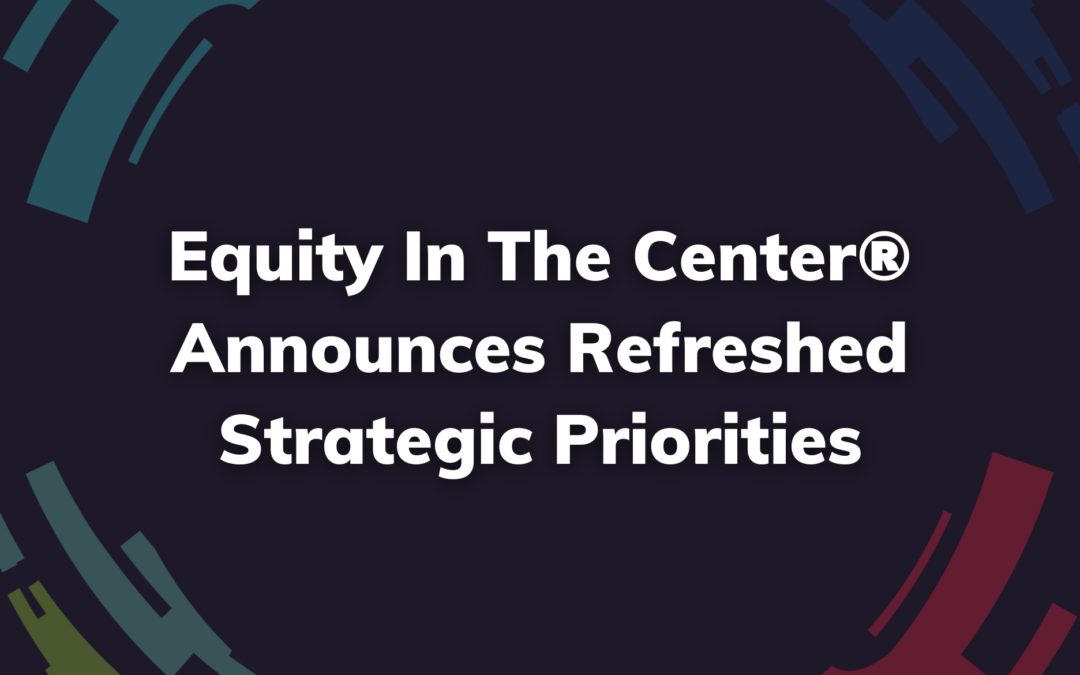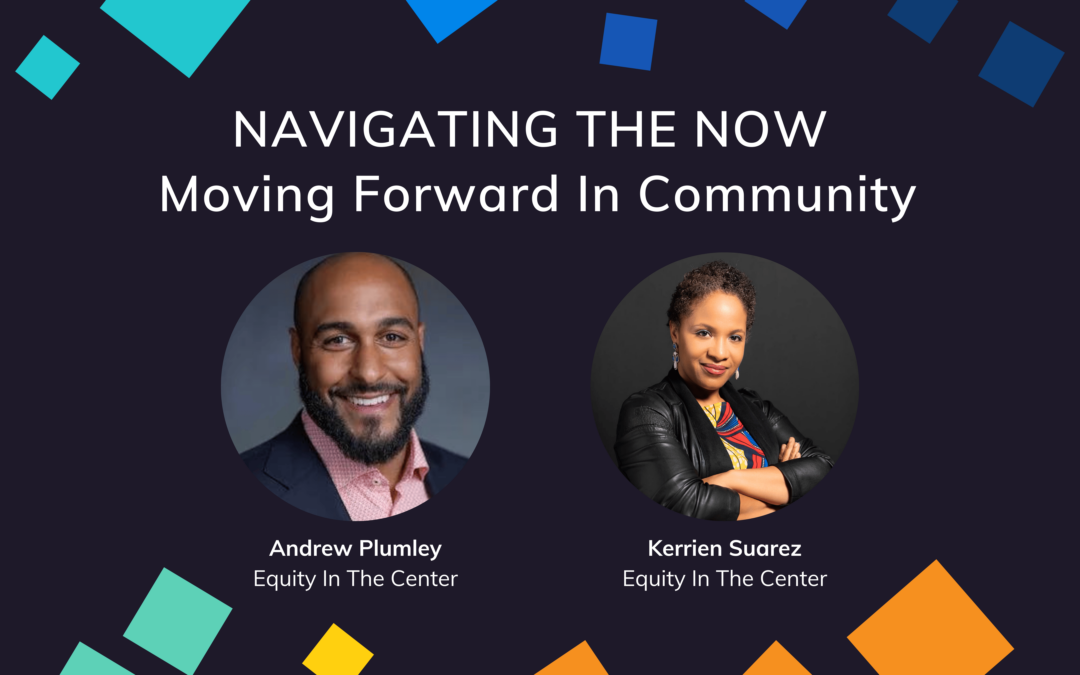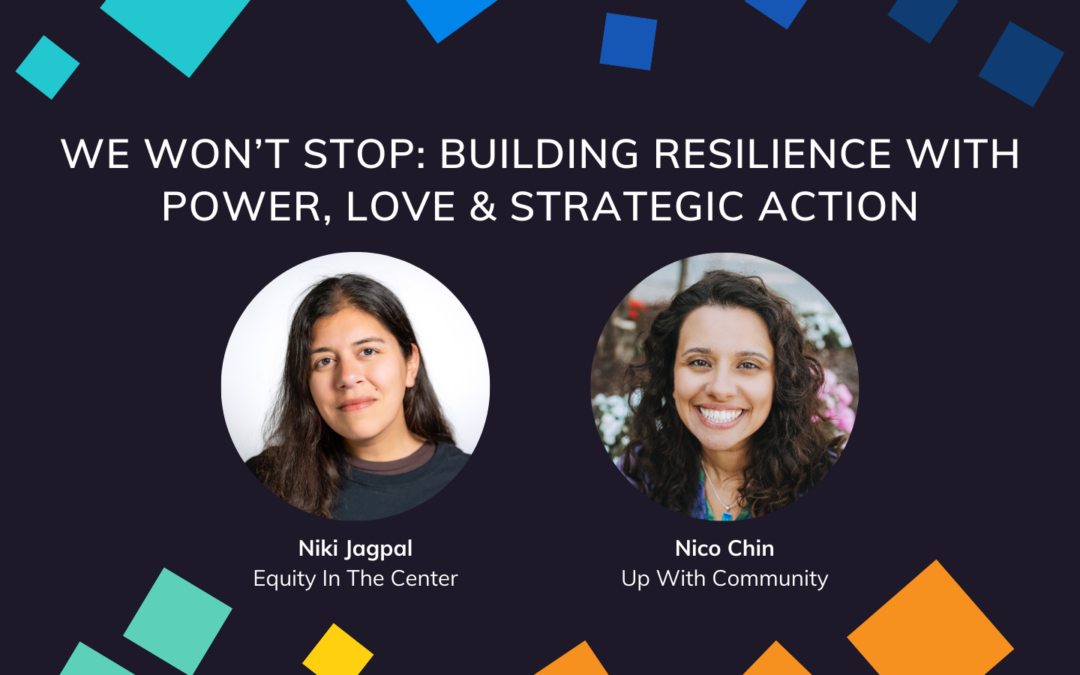Liberation from the Inside Out

POSTED ON JUNE 5, 2019

By Lindsay Majer (Bio below)
I imagine our pause for the cause has looked like an eleven-month vacation. We did not welcome a new cohort of Fellows. We haven’t hosted lunch and learns or community forums. We haven’t produced widgets. Though our grantmaking has continued and we recently announced several pilot programs, some of you may have wondered what we’ve been up to.
I can attest that we’ve been hard at work. We have been looking inward naming our privilege, looking power in the face, unlearning internalized beliefs, and resisting practices entrenched in white supremacy with patience, compassion and care for each other. It’s ongoing work that requires emotional labor and continual reflection. Here, I share with you part of my processing:
Going Inward
When we are in constant motion reacting to the immediate needs in front of us, it’s difficult to identify the systems and structures in place that perpetuate oppression. This pause has made us sloooow down and sit still in who we are, where we come from, what we value, and what we believe to be true.
I hold a lot of privilege and power as a straight, cisgender, abled, 38 year-old, formally-educated white female. White culture reinforces the idea that people who look like me have the answers, but the truth is, I don’t know what I haven’t experienced. And I have a responsibility to listen and learn from others’ experiences, hold space without being in the center of it, and amplify the voices of those whom society places in the margins.
Similarly, as AMKRF goes inward, we are identifying the power we hold as a funder. We are learning how the systems of philanthropy are oppressive, conspire to keep the status quo, and maintain power over. These systems are inconsistent with our values. Informed by the community listening project and guided by our trusted advisors, this pause has allowed us to think creatively about how to do philanthropy differently.
Relationships Are It
Over the past few months, AMKRF staff have spent a lot of time sharing stories about the places we’ve lived, the people who shaped us, and the experiences that have influenced our perspective. Sharing these personal stories felt revealing and vulnerable at times, but hearing and sharing these perspectives connected us on a human level. Getting to know each other in this way brought a new level of respect and trust.
With that trust, we started to examine the culture of our organization. What power does each of us hold? How does this inform our decisions? How does white supremacy show up in our organization? Knowing where each of us was coming from was helpful when having difficult conversations and identifying tensions within our organizational culture. When tensions arise, and they do, we trust they come from a place of deep caring.
Bringing our whole self to work is liberating. Valuing each other as a whole person rather than the hat they wear when they show up is truly a radical act. Taking the time to listen and share builds trust – trust in the process, trust in each other, and trust in what you are working to create.
Culture Building
As we peeled back the layers of the AMKRF onion throughout our pause, dominant white culture continued to show up. We identified that our communication was overly nice and non-confrontational. We asked everyone for input, but never shared how feedback would influence the decision making process. Our unspoken norms were reactionary and urgent. Our grant applications assumed white leadership and asked a lot of unnecessary questions. Our organizational policies were either absent or unclear leading to confusion and inequalities. Our outlook was apologetic, guilt ridden, and seeped in white fragility. We showed up in community unaware of the power we hold as a funder.
I could go on about all the hard truths we identified and continue to identify about our organizational culture. Fortunately, being aware and naming them is the first step to transforming them. Eleven months ago, I didn’t have time to think about these things let alone possess the words to name them. With some guidance* and patience, by going inward, trusting in relationships, and building our organizational culture, we are creating systems more in line with our values. We hope the culture we create as individuals within our organization ripples outward into a more just world.
*Extraordinary guidance provided by Tamiko Ambrose Murray of Ambrose Consulting and Beth Trigg of Taproot Consulting. Learn more about their work with social justice organizations by reaching out to them at ambroseconsultingwnc@gmail.com and beth.trigg@gmail.com.
Liberación de Adentro Hacia Fuera

Por Lindsay Majer (Bio abajo)
Imagino que nuestra pausa por la causa parece una vacación de once meses. No recibimos a un nuevo grupo de becarixs. No hemos organizado almuerzos para aprender ni foros comunitarios. No hemos producido widgets. Aunque hemos seguido nuestras donaciones y recientemente anunciamos varios programas piloto, puede ser que algunxs de ustedes se hallan preguntado qué hemos estado haciendo.
Puedo dar fe de que hemos estado trabajando arduamente. Hemos vuelto nuestra mirada hacia adentro nombrando nuestro privilegio, viendo al poder en la cara, y resistiendo las prácticas arraigadas en la supremacía blanca con paciencia, compasión y cuidándonos mutuamente. Es una labor consistente que requiere trabajo emocional y reflexión continua. Por medio de la presente comparto con usted parte de mi proceso:
Yendo Hacia Adentro
Cuando estamos en constante movimiento reaccionando a las necesidades inmediatas que tenemos enfrente, es difícil identificar los sistemas y estructuras que prolongan la opresión. Esta pausa nos ha hecho bajar la velocidad y quedarnos quietxs en quiénes somos, de dónde venimos, qué valoramos y qué creemos que es cierto.
Yo tengo muchos privilegios y poder por ser una mujer blanca, heterosexual, cisgénero, sin discapacidades de 38 años, con educación formal. La cultura blanca reafirma la idea que la gente que se ve como yo tiene las respuestas, pero la verdad es que no conozco las experiencias que me faltan y tengo la responsabilidad de escuchar y aprender de las experiencias de lxs demás, dar espacio sin estar en el centro, y amplificar las voces de quienes la sociedad marginaliza.
Del mismo modo, a medida que AMKRF mira hacia adentro, estamos identificando el poder que tenemos como financiador. Estamos aprendiendo cómo los sistemas de filantropía oprimen, conspiran para mantener el estatus quo y mantener el poder. Estos sistemas son incompatibles con nuestros valores. Con la información del proyecto para escuchar a la comunidad y bajo la asesoría de nuestrxs asesores de confianza, esta pausa nos ha permitido pensar creativamente en cómo hacer filantropía de manera distinta.
Todo Depende de las Relaciones
Durante los últimos meses, el personal de AMKRF ha dedicado mucho tiempo a compartir historias sobre los lugares donde hemos vivido, las personas que nos moldearon y las experiencias que han influido en nuestra perspectiva. A veces, compartir estas historias personales es muy revelador y vulnerable, pero escuchar y compartir estas perspectivas nos conectó en un nivel humano. El llegar a conocernos de esta manera trajo consigo un nuevo nivel de respeto y confianza.
Con esa confianza, empezamos a examinar la cultura de nuestra organización. ¿Qué poder tienen cada unx de nosotrxs? ¿Qué influencia tiene eso sobre nuestras decisiones? ¿Cómo se manifiesta la supremacía blanca en nuestra organización? El saber de dónde venimos nos ha ayudado cuando sostenemos conversaciones difíciles y también a identificar tensiones dentro de nuestra cultura organizativa. Cuando surgen tensiones, y sí que surgen, confiamos que provienen de un lugar de profundo cariño.
Es liberador incorporar nuestro ser por completo a nuestro trabajo. Valorarnos mutuamente como personas completas y no solo el papel que jugamos es un acto verdaderamente radical. Tomarnos el tiempo para escuchar y compartir crea confianza-confianza en el proceso, confianza mutua, y confianza en lo estas creando.
Creando Cultura
A medida que pelamos las capas de la cebolla de AMKRF a lo largo de nuestra pausa, la cultura blanca dominante seguía surgiendo. Identificamos que nuestra comunicación era excesivamente agradable y no conflictiva. Pedimos la contribución de todxs, pero nunca compartimos cómo esa retroalimentación influenciaría el proceso de toma de decisiones. Nuestras normas no expresadas eran reaccionarias y urgentes. Nuestras solicitudes de becas asumían un liderazgo blanco y hacían muchas preguntas innecesarias. Nuestras normas organizativas estaban ausentes o no eran claras, lo que creaba confusión y desigualdad. Nuestro panorama era apologético, abrumado por la culpa, e infiltrado por la fragilidad blanca. Participábamos en la comunidad sin ser conscientes del poder que tenemos como financiadorxs.
Podría continuar hablando sobre todas las verdades difíciles que identificamos y que continuamos identificando sobre nuestra cultura organizativa. Afortunadamente, el primer paso para transformar esas verdades es reconocerlas y nombrarlas. Hace once meses no tenía tiempo para pensar en estas cosas y mucho menos tenía las palabras para nombrarlas. Con algo de asesoramiento* y paciencia, al ir hacia adentro, confiar en las relaciones, y crear nuestra cultura organizativa, estamos creando sistemas que están en línea con nuestros valores. Esperamos que la cultura que creemos dentro de nuestra organización como individuos cree olas para tener un mundo más justo.
*Asesoramiento extraordinario proporcionado por Tamiko Ambrose Murray de Ambrose Consulting y Beth Trigg de Taproot Consulting. Conozca más sobre su trabajo en las organizaciones de justicia social poniéndose en contacto en ambroseconsultingwnc@gmail.com y beth.trigg@gmail.com.

Lindsay Majer,
Director of Mindful Operations and Finance,
The Tzedek Social Justice
Lindsay grew up moving every three or four years in an Army family. Having lived five different places by the age of 15, including eight years in Germany, Lindsay learned the importance of community early on. She began her professional career in environmental planning and natural resource management and soon realized social equity is too often left out of sustainability efforts. Lindsay began working for social justice in 2013 with a job-training and workforce development non-profit organization. This work increased equitable access to opportunity, education, health, and wealth to all individuals regardless of their background, which is the only way thriving communities are created. When not providing organizational support for the Amy Mandel and Katina Rodis Fund, Lindsay teaches yoga in a variety of settings from group classes, wellness retreats, and one-on-one private sessions in Asheville, NC. She loves digging in the dirt and making flowers and vegetables grow. She also enjoys cooking and spending time dining with friends. Visit Lindsay’s website.



